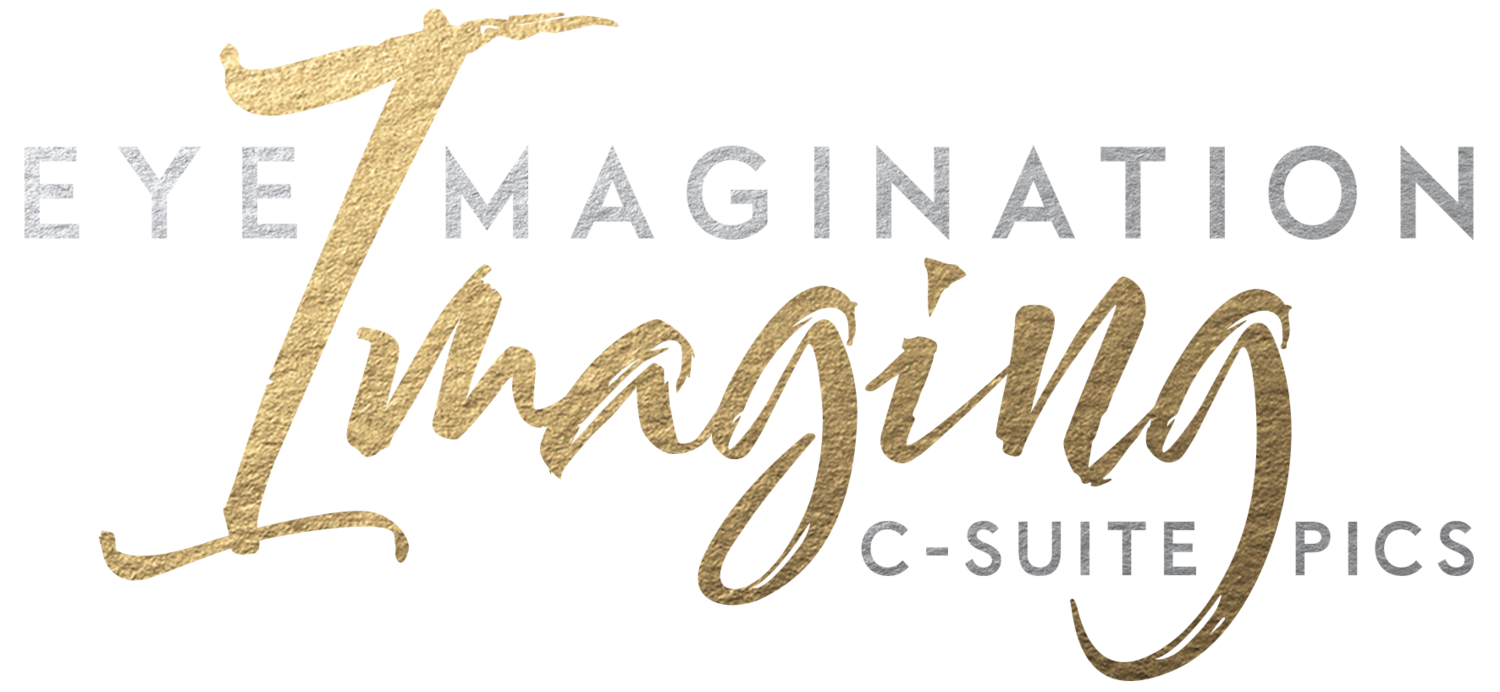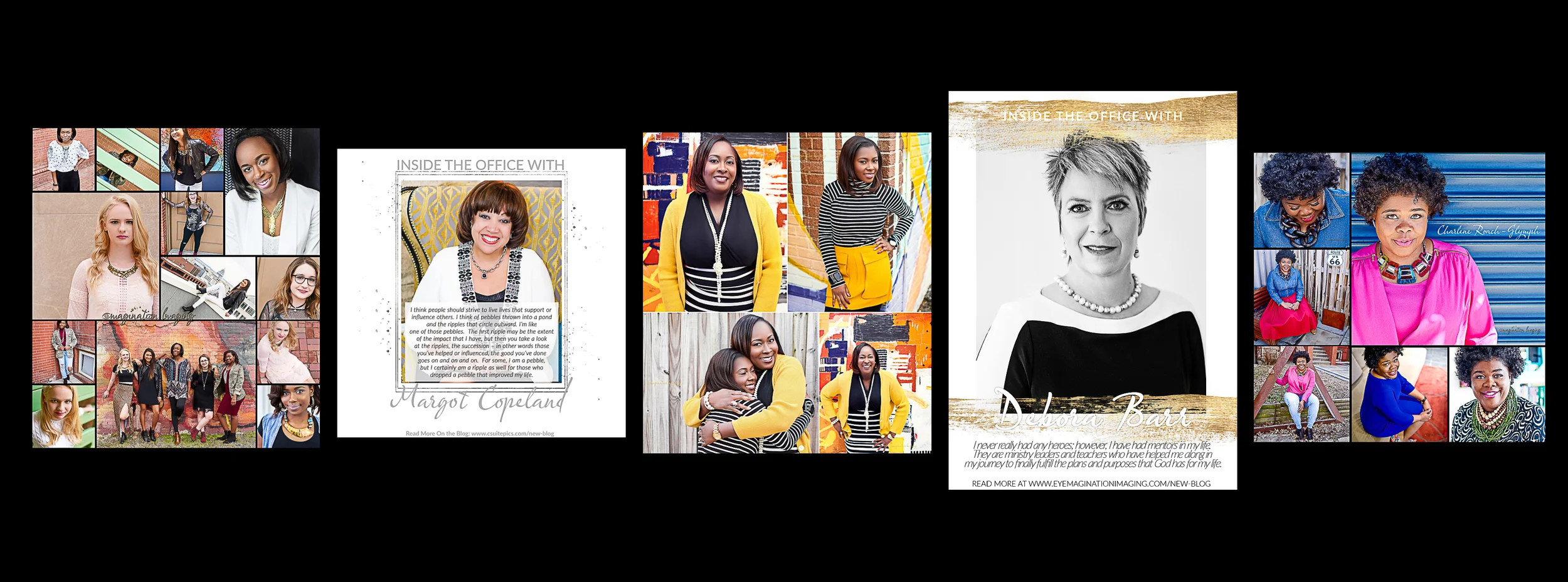Inside The Office with Connie Atkins
/What is your "day job"?
I lead a dual life as a corporate and nonprofit executive. I am a published author, and also a global speaker. My for-profit organization is 35 years old, and my nonprofit is 15 years old. I am a paid consultant. My primary work is coaching and managing Atkins Professional Advantage. This business started as a word processing service bureau; the first one in Ohio. Our focus was on producing documentation professionally - scripts, books, magazines, annual reports, proposals, etc. Doctors kept sending me work and I didn’t know anything about medicine, so I hired a couple of medical students. In the evening, I would proofread their work, and what I didn’t understand, I would call my brother who was a medical resident in Ohio, and ask him my questions. Eventually we became the largest medical transcription company in the state. What I learned is that a person might go into business for one thing, but really you are in business to make money and solve problems. You make money by solving problems. You have to have your mind open to that opportunity. That’s how I ended up doing medical transcription in six states.
When I was a senior in college, I told one of my professors that I was going into human resource management. He told me it was a waste of my talent to stick to one field. He told me that I should be a paid consultant. I’ve done a wide variety of special projects as a consultant that have taken me all over the world, including a White House Commission with the Department of Commerce under President Bill Clinton that led to multiple appointments with President Nelson Mandela negotiating the first Trade Initiative post apartheid with South Africa.
Who were your heroes, or mentors?
My number one hero is my grandmother, Emma Trotter Thompson. She used to be a one-room schoolhouse teacher and a midwife in the south. The life lessons she has taught me, I use on a daily basis. One such lesson was this: Never tell a lie. I’m serious when I say never tell a lie. When I was a young girl around 5 or 6 years old, I was a little tattle tale. One day my grandmother told me that I needed to stop telling on folks and telling lies. She told me that every time I would lie or exaggerate, I would get a “lie bump” on my tongue. And it worked! Every time I would lie or exaggerate, I would get a “lie bump” on my tongue. And it taught me to not lie. It made me very straightforward and non-tactful. As a result, the number one thing that my main high school teacher taught me was how to be tactful. She told me I needed to find a better way to share things with people; a more tactful way.
So, between my grandmother and my teacher, Mrs. Honeywell, I learned a lot of life lessons!
My mother, Cornelia “Connie” Alexander, is my number two “s”hero. Everybody’s life goes through “hell and high water.” My mother taught me how to get through hell on earth. She is the most giving, caring, kind and sharing person I’ve ever known. If all she had was a bag of flour and butter, she might make biscuits, and she would share half of them with someone in need. She didn’t see it as, “I don’t have meat to go with this.” No, rather, she saw the situation as someone who might need biscuits. She took me to the Salvation Army when I was six years old and told me to pick a family that needed help and do something to earn the money to help them, and that became an annual tradition throughout my childhood. When I became a homeless teenager at age 16, I already knew how to survive; no one realized that I was homeless because I never missed a day of school or missed church on Sundays. I had an after school job, so I was doing just fine; eventually, someone did not ask me how old I was and I was able to rent my first apartment at age 17.
I believe in astrology and Christianity. I do not believe they are opposites. There are several Bible verses that support my beliefs in both. They go together. My business astrologer friend, who I happen to be mentoring, said that--based on astrology, that I am really good at making something out of nothing. And that’s true, whether it is in the kitchen or in business. I learned that from my mother and grandmother. They could make something that looked like nothing into something fantastic. I learned to sew entire outfits without a pattern, make footstools from juice cans, and pillows from discarded neckties and stockings, while growing all our vegetables in the backyard. It doesn’t take a lot to do a lot.
The life skills that those two women taught me have benefitted not only me, but everyone with whom I come into contact.
When did you decide you were an entrepreneur, that this would be your journey?
Even though I was a child entrepreneur with a lemonade stand, paper route, babysitting services, etc., I really decided to become an entrepreneur as a student at John Carroll University. I was brought up in the 1950s, when there were a lot more black entrepreneurs than there are now. It was a way of life. My father owned the auto mechanic shop, and one uncle had a TV and appliance store; another uncle had a farm and junkyard. In fact, I can only think of one or two black families in my hometown that did not own a business. It was natural that when you wanted something, or needed something, you either created it or sold it. So many of our youth today don’t know that way of life; they have never seen it.
In the 90’s, I developed and taught a program that took 30 students who lived in the projects, and taught them all how to start a business within 30 days. I showed them that every teen in that room had something they could sell, and within 30 days, they each had a business. Our community today is being taught how to be consumers, but they are not learning how to be decision-makers, problem solvers, innovators and creators. Ten years ago, I founded the Youth Innovation Forum for the Consortium of African American Organizations, where we take youth as young as 10 years old and teach them creativity and innovation. We are now taking that program to the next level, where we are teaching them how to develop and pitch their products. We’re teaching them how to build potential billion dollar businesses.
If you weren't an entrepreneur, what would life look like?
There are so many things I could be. I love working with Media Relations and Board (especially vendor) diversity. I have a degree in Human Resource Management, so I’ve been offered director of HR, and I could be a Chief Information Officer. I used to be a paralegal as well. I’ve been trained in every industry and have taught a variety of courses at multiple universities.
Being an entrepreneur has its ups and downs. I had some major medical issues at one point, and no one wanted to insure me. When I needed major surgery, three different medical professionals told me that I needed to take a job to get health insurance. So, I did, and in that job, I learned a lot about IT. But what I really missed was the fulfillment of helping other people; that is what I get while working in the nonprofit world. And, I missed the gratitude for my hard work.
If you had it all to do over again, would you do anything differently?
I’ve learned an awful lot. Service business is a lot of labor, and labor is expensive. If I had to do it all over again, rather than having a service business, I would have a manufacturing or distribution business where I would either produce a product or sell someone else’s products. A service will get you two to four times your investment, and a product can get you 15 times your investment.
People want to do what looks glamorous and sounds good, and they don’t realize you can make a ton of money shoveling “shit”. And “shit” can stand for anything.
It’s interesting what you learn when you live long enough. I help young protégés learn how to shovel a whole lot of “shit”.
What do you do for you that brings you absolute joy or peace?
My grandbabies. I can’t see them enough, I can’t love on them enough, and I can’t hug them enough!
What would you like your epitaph to be?
She visualized it, she realized it, and she did it, all with a positive attitude.
In one word, what is it that you want people to remember about you?
Positive. I want to be remembered as always having a positive attitude. No matter what is going on in your life, you have to find a way to have a positive attitude. You have to find a silver lining, and there is always a silver lining. The valleys are God’s way of teaching us; and if we learn from the valleys, we appreciate all the miracles that surround us daily.
Is there anything else you wish I'd asked you?
What is my greatest emotion? Love. I love to be loved and I love to give and share love. I love for other people to feel loved. I’m a big hugger. People reach out to shake my hand all the time and they get a big ol’ juicy hug. When someone is down, it lifts them up. When they’re up, it holds them up. When they’re sad and sorrowful, it can save the day. I’m sure I have saved lives with a hug. Love is the greatest.






















